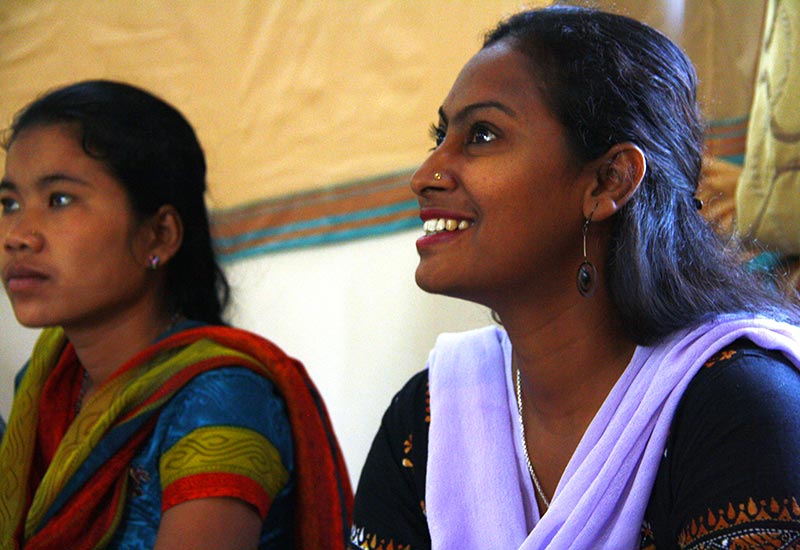Strengthening the resilience of West Bengali farmers

Soma is from West Bengal, a state that boasts extraordinary biodiversity but is also one of the most ecologically fragile regions in the world. At high risk of seasonal flooding, and prone to cyclones, West Bengal’s extreme weather patterns threaten the food, water, and economic security of its communities, especially its farmers. Committed to improving her circumstances and those of her community, Soma works with the local organization, West Bengal-based Development Research Communication and Services Centre (DRCSC) to mitigate the catastrophic impacts of climate change on female farmers in her state.
As a farmer, water collector and caregiver, Soma is on the frontlines of the climate change crisis. She came to WEA and our partner GEAG’s 2011 Northern India Women, Food Security, and Climate Change Training with a vision: to improve the resilience of West Bengali farmers in the face of climate change and regional flooding. Soma was not alone — twenty-nine more Indian women farmers from other regions came to the WEA training with similar visions. By connecting women from across India who already have their own techniques and solutions for dealing with floods and maintaining food security, WEA and GEAG created a container for women across regions learn from one another.
At the Training, these women farmers exchanged knowledge and learned skills in low-cost techniques to mitigate the effects of climate change. During the training, Soma and her teammate created a year-long action plan to increase resilience to floods and improve food security in West Bengal.
Soma returned to her community armed with new solutions, ready to implement her action plan. Soma facilitated demonstrations of several appropriate technologies that help women access food, harvest water, and improve community health. She mobilized her community to:
- Construct a rainwater harvesting system, providing water for fifty families
- Build container gardens for an entire community to ensure their access to food
- Provide twenty women with organic, low-input seeds
- Build six smokeless chulhas, demonstrating the positive respiratory health impacts and improved efficiency of the stoves
Soma’s story demonstrates the power of what can happen when grassroots women come together and learn from each other. In Soma’s community, women are moving from a place of dependency to a place of self-reliance. Soma’s leadership has helped spread needed information and solutions that can help families survive during the rainy season. Soma has helped herself and other women leaders in her community unlock their leadership to take control of their own livelihoods.
As Soma puts it, “I am a farmer, I am happy, and I choose to remain so.”
We stand in solidarity with Soma as she is improving the independence and resilience of women farmers in West Bengal.
